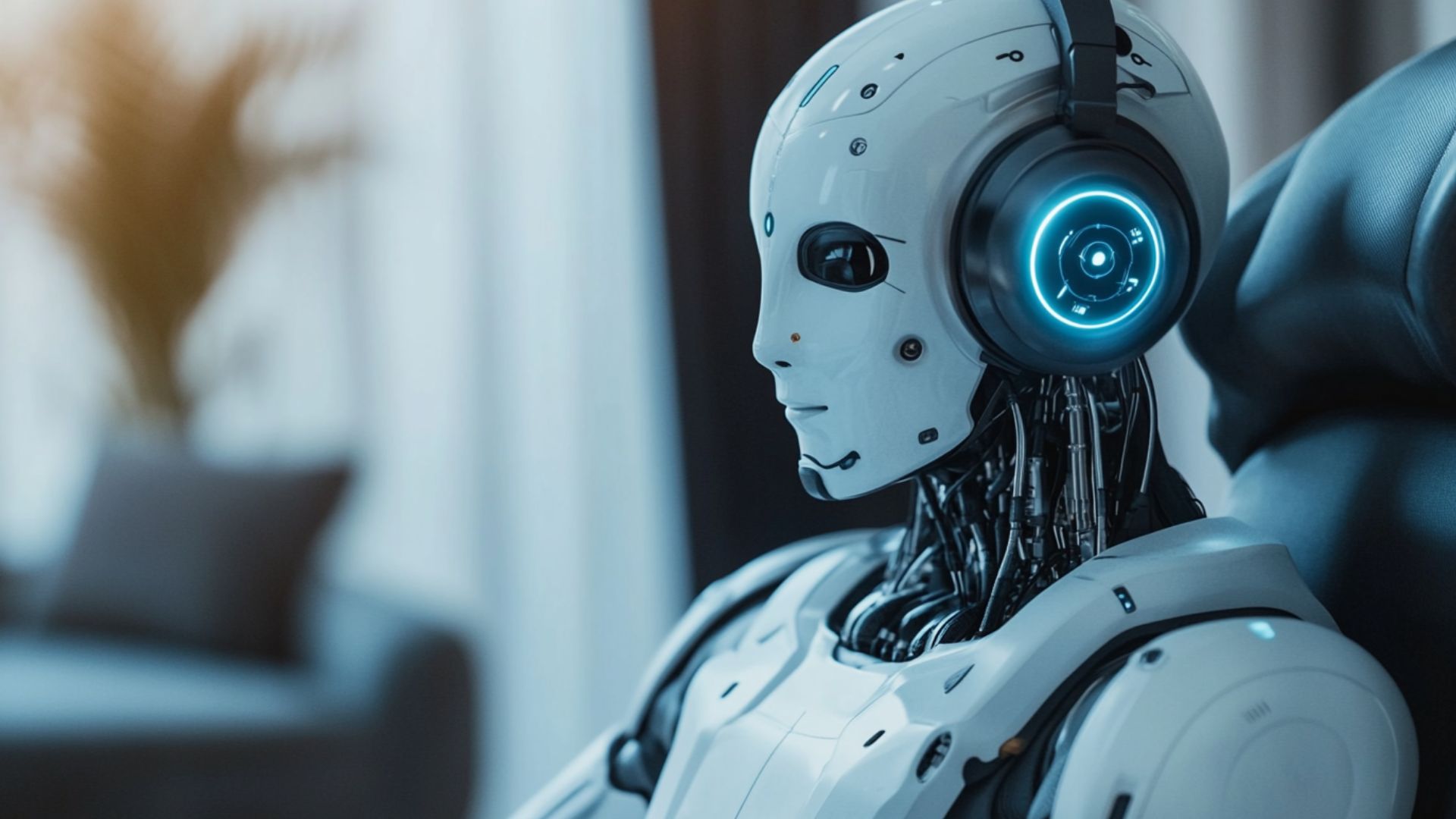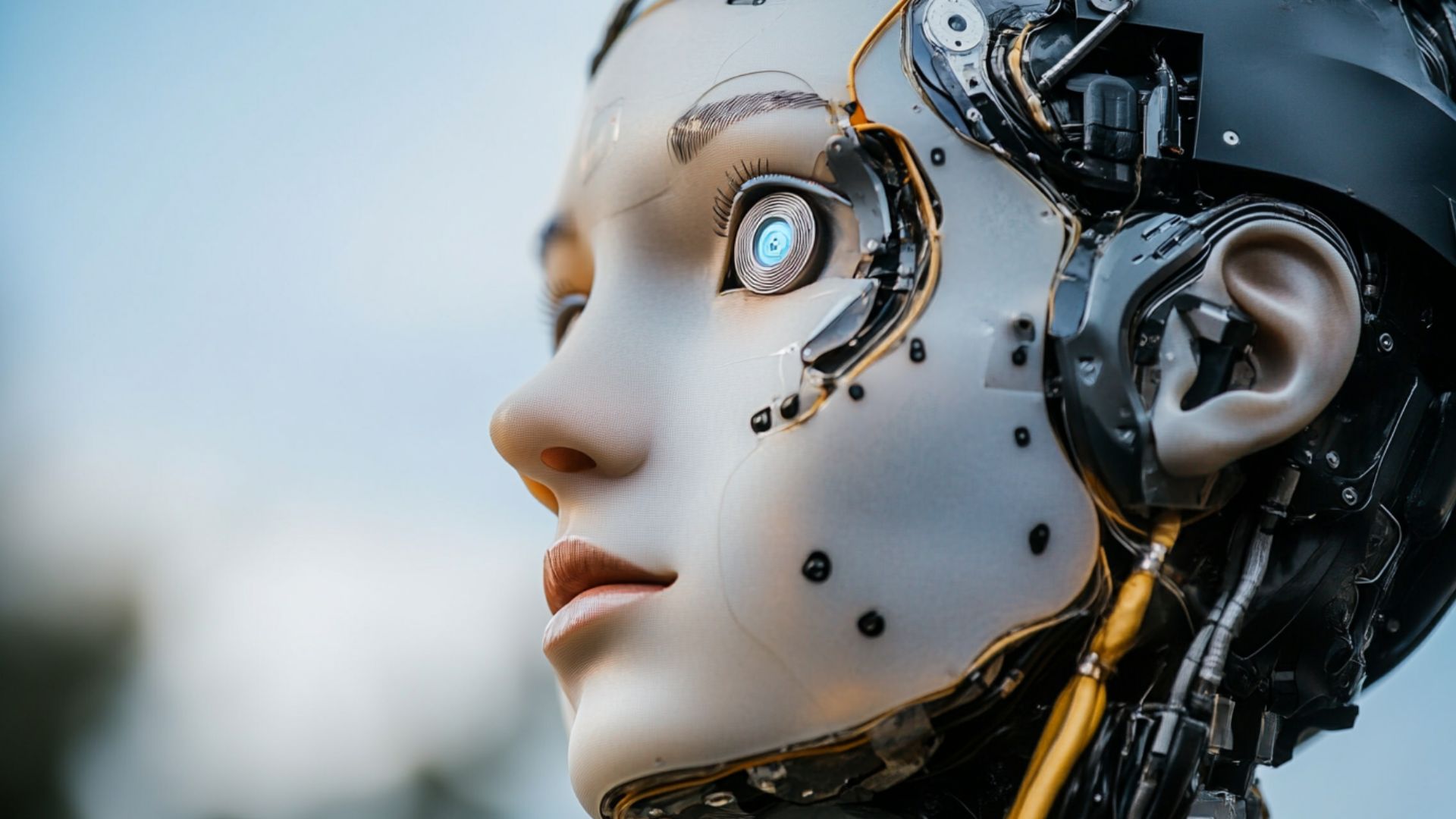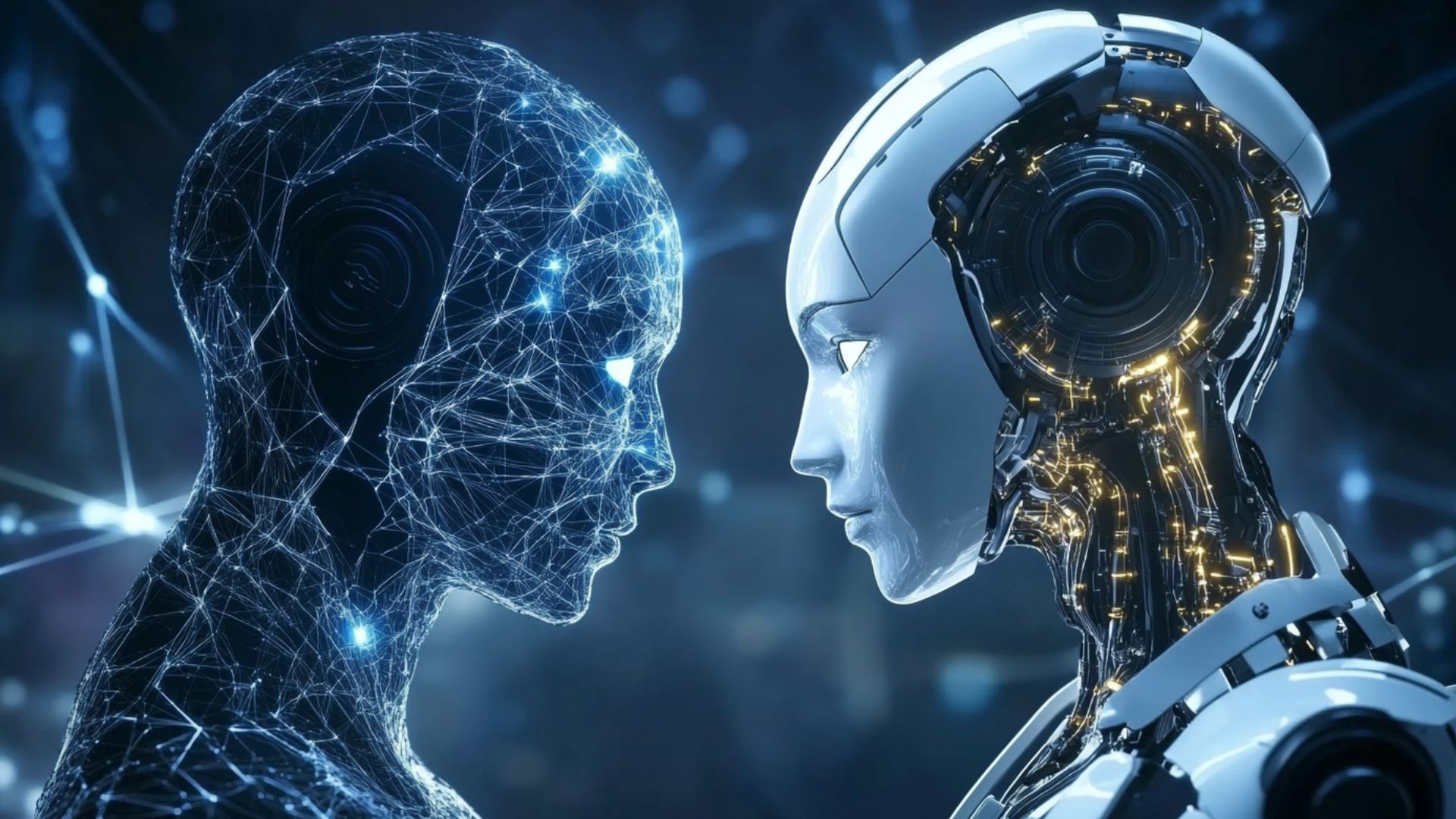The Future of AI in Medicine: Transforming Healthcare Through Technology

Healthcare has always been fundamental to human civilization. It has contributed to improving the health of patients and new treatment methods. They are always aimed at a positive outcome and overall well-being of a person. Medicine and AI are becoming more and more connected due to their significant success. Patients are able to receive personalized care and treatment. Doctors are using artificial intelligence as a tool for better outcomes. Through this integration, sustainable development in medicine is improving. Special tools also play an important role in improving the healthcare sector.
The creation of special virtual assistants in healthcare plays an equally important role. It becomes possible to perform the most complex operations without human intervention. Patients receive more precise and effective treatment, and enabling doctors to work more effectively. By moving to a new level, it becomes possible to create the advanced treatment modalities. Generative AI medicine is focused on the advanced drug development technologies. Various diseases that were previously undetected are being diagnosed. Artificial intelligence can better process data and assess the patient's condition. Thanks to AI, effective treatment and recommendations are not only prescribed.
How AI is Revolutionizing Diagnostics
Artificial intelligence has been proven to be effective in many different areas. It is especially popular in healthcare and medicine. There is a revolution in providing reliable and fast diagnostics of any disease. The patient will receive the appropriate diagnosis and subsequent treatment and its plan. Optimization of healthcare processes is for the benefit of humanity. Virtual assistants, machine learning, and algorithms play a significant role in this. AI in diagnostics is responsible for many vital actions for doctors and patients. Pathology, dermatology, and radiology are the most frequently researched fields. It is in these areas that split-second decisions, accuracy, and safety are of the utmost importance.
- Medical imaging deserves a lot of attention. Doctors can get high-resolution images from X-rays, MRIs, and computed tomography. AI for health plays a vital role in this regard. It examines the slightest indications and deviations in human health that are microscopic. Doctors know what is best for the patient in the future and prescribe treatment.
- Artificial intelligence also plays a major role in radiology. It becomes possible to detect various diseases close to cancer and tumors at early stages. It also becomes possible to investigate various infections and pathologies that a regular doctor cannot do. AI medicine is making a revolutionary change in investigating the smallest visible diseases. The study of breast cancer and other diseases is gaining a lot of attention. It is a special AI-based device that can examine beyond human visual detection capabilities.
- Artificial intelligence in pathology deserves a lot of attention. It analyzes and studies a wide variety of tissue samples. With all the training and research, it becomes possible to diagnose various diseases. The future of AI in medicine identifies malignant cells and tumors. Specialized tools and their use play a vital role in this. The most important thing is that artificial intelligence can diagnose diseases that are microscopic.
- For clinical diagnostics, artificial intelligence is indispensable. Advanced technologies are essential to process natural language. AI for health is very useful because its review is so important. Clinical diagnostics is known for processing both medical literature and patient history. The most important thing is to be able to provide doctors with the information they need. Evidence-based information is the way to fight and help patients.
AI in Early Detection of Diseases
AI medical services are essential for the healthcare sector. There is a transformation from sustainable treatment to more optimized and improved treatment. AI has the ability to demonstrate its work on examples that are invisible to the human eye. Diseases detected through AIare a good reason to start treating patients. AI can detect cancer and Alzheimer's disease at early stages. For doctors, this is a key point to improve patient outcomes. Disease onset, abnormalities, and progression can be detected. Early diagnosis is the best option for treatment and further health of a person. Key applications include:
- Cancer detection. AI machine learning in healthcare is revolutionizing healthcare globally, improving various aspects of healthcare. It analyzes multimillion data and allows doctors to get a positive outcome. Medical visualization is the first step for accurate early screenings. Special tools and learning machines are used to analyze this data. In cancer detection, mammography, tomography, and other pathologies are analyzed. AI helps detect cancer cells in the early stages and determine the areas of their damage. In many cases, artificial intelligence prevails over radiologists due to its efficiency. Some diseases are often impossible to detect with the naked eye. Learning machines and AI demonstrate their high-quality performance and continuous monitoring for improved actions.
- Detection of Alzheimer's disease. AI for health is very important because detecting Alzheimer's disease early is imperative. Special AI-based tools are very effective in this regard. They help to scan the brain and detect its activity and various signs of disease. Thanks to AI algorithms, various changes can be studied. Even the most minor changes can be seen, and treatment can be started. Another great advantage of AI is the ability to monitor the entire functioning of the brain. That is, cognitive abilities, brain functioning, and even eye movements can be detected.
AI-Powered Diagnostic Platforms
AI in diagnostics plays a vital and transformative role. The most important thing is to improve the accuracy and speed of this diagnosis. Some diagnostic platforms have a positive impact on patient treatment. Data from different sources is being combined for improved research during treatment. Here are some interesting examples:
- IBM Watson Health. It uses artificial intelligence to analyze diverse datasets. This amount of data includes medical laboratory and patient information and clinical trials. All this data is essential for doctors and their further treatment. The information shows all possible treatments and potential threats. It also clarifies potential diagnoses for a variety of complex conditions.
- Aidoc and Zebra Medical Vision. Medicine and AI are very closely related. Artificial intelligence also specializes in radiology and analyzes various images. Usually, these images can include information that is microscopic. Special platforms help AI detect diseases at early stages. The significant advantage is that doctors can prescribe the right treatment faster. There is a focus on various critical cases that should be taken into account.
AI and Machine Learning in Patient Care

Machine learning and AI for healthcare play a considerable role. They are changing the approach to patient care and improving personalized medicine. Patient treatment is reaching a new level. Continuous monitoring provides comprehensive insights and improved outcomes. Despite the high-quality treatment, individualized methods are essential. They are taking the lead in the world in terms of quality of healthcare.
- For personalized medicine, artificial intelligence is crucial. A large amount of data is being analyzed, including genetic information. They can provide many answers to questions about a person's medical history. The lifestyle of a person, the history of their diseases, and other studies are also investigated. They are essential for processing all the data and further treatment. AI medicine improves the approach to treating patients and getting excellent results. The treatment is tailored to the patient's lifestyle and all possible consequences. The most important things are accuracy, error-free, and reduction of various errors.
- AI-powered virtual assistants are monitoring the patient's condition and health. They can give certain advice on how to monitor heart rate or blood pressure. Specialized natural language processing and machine learning tools are important. They answer patients' queries and offer exactly what they need.
- Special wearable devices help with real-time monitoring. They collect all the data about a person's health, including blood pressure and pulse. These devices can be in the form of a watch that helps to monitor human health. For doctors, remote monitoring of patient health is critical.
Generative AI for Treatment Plans
Generative AI medicine is taking the healthcare industry to a new level. It becomes possible to create individual treatment plans personalized specifically for the patient. There is a significant difference from the usual artificial intelligence that is popular. It is generative AI that works with advanced algorithms that lead to a new solution. This approach encompasses:
- Generative artificial intelligence includes case-based medicine. It shows its effectiveness in a variety of complex diseases. Doctors use unique models of the latest technologies to analyze patient data. Comparison with large datasets helps to identify the onset of the disease. This method is ideal for assisting doctors to choose the best treatment. It is aimed at minimizing side effects and avoiding various mistakes.
- AI diagnosis is aimed at discovering the latest drugs. Doctors are offered new drug compounds that work in certain conditions. New drugs accelerate patient recovery and help them recover. Generative artificial intelligence also helps to create a unique care plan. Personalization for the patient is essential. Doctors can choose the appropriate pace and method of treatment for each patient.
AI in Chronic Disease Management
The future of AI in medicine is making a new transition in the management and treatment of various diseases. The transformation in the management of various human conditions helps to accelerate treatment outcomes. Continuous real-time monitoring helps to keep track of the patient's condition. Monitoring is essential for people with severe illnesses. Here are some examples:
- Diabetes. Using special AI tools to control diabetes is essential. Specialized tools for glucose control help a person maintain their condition. Artificial intelligence algorithms constantly monitor a person's condition and detect the slightest fluctuations. It is important for a person to follow a prescribed diet, exercise, and take medications. Data on the patient's condition is analyzed and transmitted to the doctor. AI tools for healthcare are essential because they maintain this connection. Later, it becomes possible to prescribe an individualized treatment plan for the patient. A person can independently control diabetes and prevent various complications.
- Hypertension. Specialized devices help to control hypertension in real-time. They help to measure blood pressure and monitor the patient's health. The most important indicator is to assess the complications of hypertension and send information to the doctor. Based on this data, doctors can adjust the prescription of medications and change the treatment plan. Advanced technologies are essential for maintaining human health and monitoring its condition. Medicine and AI are interconnected and help each other for better results.
The Ethical and Regulatory Landscape for AI in Medicine

Artificial intelligence plays a crucial role in medicine. However, there are questions about privacy, trust, and ethics. It is essential to understand that the bias of artificial intelligence algorithms raises the most questions. New technology in medicine is aimed at improving the treatment and research of patients. AI systems are constantly being trained and improved for better efficiency. It is this training that is essential in excellent healthcare outcomes. Data privacy is another important issue today. Artificial intelligence securely stores sensitive patient data about a patient's health. Adherence to the strictest rules aimed at protecting patient information gives permission to let this data through. AI strives to achieve positive outcomes and be successful. AI medical services are often questioned in decision-making. However, it should be understood that doctors cannot consistently achieve results with the naked eye. Artificial intelligence is aimed at exploring information that is inaccessible to the human eye.
The Future of AI in Global Healthcare
The future of artificial intelligence in healthcare is indeed advancing rapidly. It is improving data processing and facilitating better patient care. AI tools have an extraordinary breakthrough in sophistication and accessibility. The use of specialized resources is becoming an aid to patient care. The development of AI-based technology is also helping to achieve great success. The tools used for diagnostics are one step ahead. Doctors can detect patients' diseases at the first stages. AI machine learning in healthcare is taking a leading position. It allows for massive data analysis and access to doctors. It becomes possible to treat chronic diseases and develop special new medicines. Personalized medicine is also reaching a new level to improve the condition of patients. Medical visualization helps to detect various diseases at the initial stages. AI is transforming healthcare delivery and allows patients to receive truly high-quality services.


